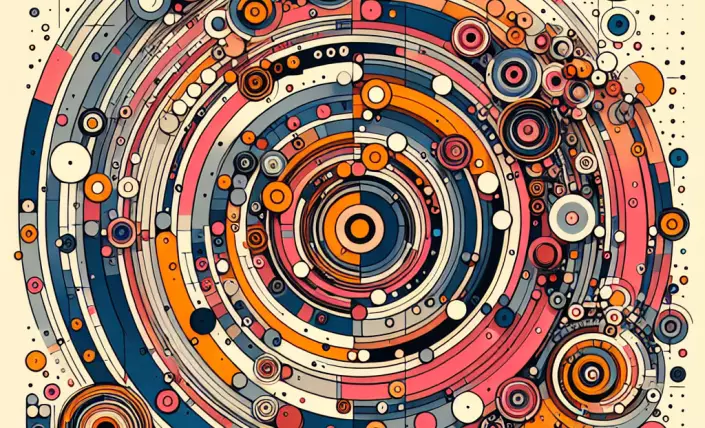In a world where chaos seems to be the reigning principle, there exists a subtle force that orchestrates order without the need for a central command. This concept, eloquently explored by Friedrich Hayek, challenges the very foundation of how we perceive order and organization in society. Spontaneous order, as Hayek termed it, is an idea that has profound implications not just for economics and politics, but for our understanding of human nature and society at large.
At its core, spontaneous order is the phenomenon where order emerges naturally from the interactions of individuals, each operating according to their own self-interest and without any overarching directive. This concept stands in stark contrast to deliberate organization where a central authority imposes order through top-down directives. Hayek's insights reveal that many of the complex systems we take for granted, such as language, markets, and even cultural norms, are not the product of deliberate design but rather the result of countless individual actions and decisions.
Consider the example of language. No single person or group invented language; rather, it evolved organically as individuals sought to communicate with one another. The rules of grammar, the nuances of dialects, and the richness of vocabulary all developed over time through the interactions of countless speakers across generations. Similarly, in the realm of economics, markets are often more efficient and responsive than centrally planned economies because they harness the dispersed knowledge of individuals. Each participant in the market acts based on their own information and preferences, leading to outcomes that no single planner could foresee or orchestrate.
Embracing the concept of spontaneous order requires a fundamental shift in how we view control and predictability in our lives. It challenges the notion that we must meticulously plan and control every aspect of our environment to achieve desired outcomes. Instead, it suggests that by allowing freedom of action and encouraging diversity of thought and behavior, we can achieve a more robust and adaptable form of order. This perspective can be both liberating and unnerving, as it asks us to trust in the process and relinquish the illusion of control.
From a philosophical standpoint, spontaneous order invites us to reflect on the nature of freedom and agency. If order can arise from the bottom up, then the role of the individual becomes paramount. Each person's actions, no matter how seemingly insignificant, contribute to the larger tapestry of society. This understanding fosters a sense of responsibility and empowerment, as we recognize that our choices have a ripple effect far beyond their immediate consequences.
Moreover, the concept encourages us to value pluralism and diversity. Just as a healthy ecosystem thrives on biodiversity, a vibrant society thrives on the diversity of ideas, cultures, and perspectives. This diversity is not just a byproduct of freedom but a critical ingredient for the emergence of spontaneous order. It is through the clash and fusion of different viewpoints that new possibilities and solutions emerge, often in unexpected ways.
In the context of personal growth, embracing spontaneous order can lead to a more adaptive and resilient mindset. It encourages us to be open to change and uncertainty, to view setbacks as opportunities for learning, and to trust in the natural unfolding of events. By letting go of the need for rigid control, we can cultivate a sense of curiosity and wonder about the world, recognizing the beauty in the unpredictable dance of life.
Ultimately, the philosophy of spontaneous order is a call to embrace the complexity and unpredictability of the world. It invites us to trust in the unseen mechanisms that guide human interaction and to appreciate the emergent beauty that arises from the free interplay of individual actions. In doing so, we may discover a deeper sense of connection and purpose, not just as isolated individuals, but as integral parts of a dynamic and ever-evolving whole.










